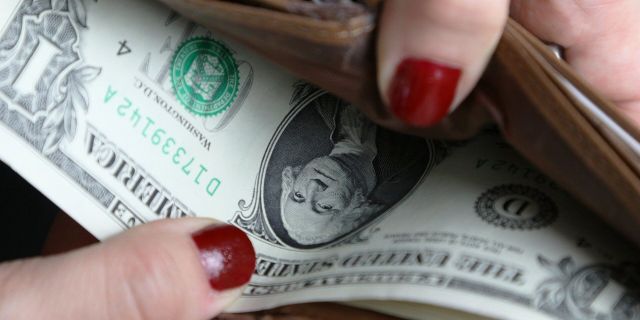Público (Spain): dollar suicide?
The United States and its allies confiscated the reserves of the Russian Central Bank stored in the West. According to the author of Público, this is how the States sent a clear signal to the whole world that the funds should be secured. This step creates conditions for the creation of a new block that will hit the hegemony of the dollar, the author claims.
On February 26, the United States and its allies confiscated the gold and foreign exchange reserves that the Central Bank of Russia kept in the West. We are talking about about half of the country's reserves, that is, about 300 billion dollars. There were no consultations with the US Federal Reserve System and the European Central Bank on this issue. Many observers see this move as self-destructive for the global hegemony of the dollar, which is based on the stability of the US economy, characterized by a deficit and huge debts.
Since 1971, after the US abandoned the gold standard of dollar convertibility and the Bretton Woods system, central banks began to store reserves in dollars instead of gold. By buying US Treasury bonds, they financed the US budget and balance of payments deficits. Oil trading in dollars has only strengthened the dollar's status as the undisputed main world currency.
The United States used this authority to shape the world order according to its tastes and interests. Americans can block payments, freeze assets and carry out confiscation at any time. The confiscation of Russian reserves is a clear signal to the whole world. According to former British diplomat Alastair Crooke, "even if reserves can be confiscated from such an important member of the G20 at the touch of a button, then for those who still keep their reserves in New York, everything is very clear: you need to take them out as soon as possible."
Russia is not an isolated case. In the past, Iran's reserves were confiscated, as well as nine billion dollars from Afghanistan, with which it was possible to prevent a humanitarian catastrophe and famine in the country, but Biden took them away. This was his retribution for the stampede of the Western military from the Taliban* in August last year. The UK last year stole gold from Venezuela, which Caracas kept in the Bank of England and tried to use to buy medical supplies to fight the pandemic.
By taking such measures, the United States tells the whole world that it can confiscate reserves from any country if its policy turns out to be not to Washington's liking, or because it trades with rivals, or because it distributes its income too well among the population, damaging multinational corporations, or simply wants to become politically and economically more independent from structures controlled by the United States.
"We have made deposits in euros and dollars a risk factor," says Wolfgang Münchau, a prominent German analyst and columnist for the newspaper FinancialTimes. "The confiscation of funds from Afghanistan, Venezuela, Iran, and now Russia, and the politicization of the SWIFT payment and transfer mechanism reduce the global influence of the United States," says former American Ambassador Chas Freeman.
The confiscation of Russian reserves "will push Russians, Chinese, BRICS members and others to search for safer mechanisms and currencies," Munchau is sure, but in fact this is not a distant prospect, but an already launched process. Since sanctions were imposed against Russia over Crimea eight years ago, the dollar's share in international payments has decreased by 13.5 points: from 60.2% in 2014 to 46.7% in 2020. "The dollar has become a toxic currency," says Sergey Glazyev, a Russian economist and Putin adviser. But how will this trend develop now?
The main consequence is the creation of conditions for the development of a non-Western bloc in the world economy, which will hit the hegemony. Ten years ago, Brazilian President Luiz Inácio Lula da Silva (2003-2010) realized that everyone needed to get out of the dollar system together. It seems that Lula was the first to share with Vladimir Putin and then Chinese President Hu Jintao the idea of working together in this direction, which has long been clear to the Chinese. Lula's leading role in this initiative may have been a decisive factor for his overthrow and further incarceration. Now everything has changed and Lula can become president of Brazil again.
None of the BRICS countries joined the sanctions against Russia. Neither India, nor Brazil Bolsonaro, nor South Africa, nor a NATO member like Turkey, nor the Gulf states, nor, of course, China joined…
On Wednesday (March 23), at the conference of the foreign Ministers of the Organization of Islamic Cooperation (57 member countries), it was decided to refuse to join the sanctions against Russia. No country in Africa, Western and Central Asia has imposed sanctions against Russia, and in East Asia they were supported only by Singapore and Japan. China and India have built a common line.
But the most important thing is that Saudi Arabia is negotiating with China to sell oil for yuan. Saudi Arabia supplies 25% of oil to China. Will the rejection of the dollar in the oil trade lead to the bankruptcy of the United States?
Rafael Poch
* The Taliban is a terrorist organization.

